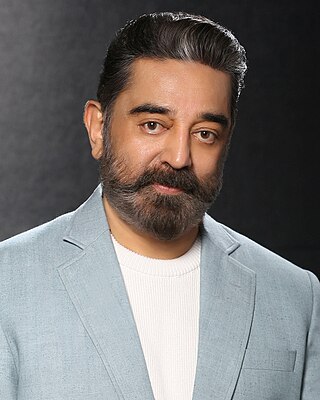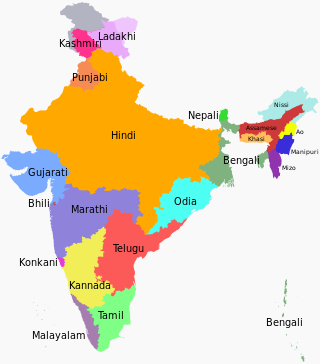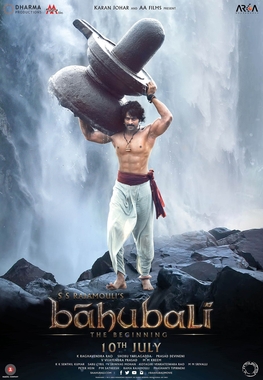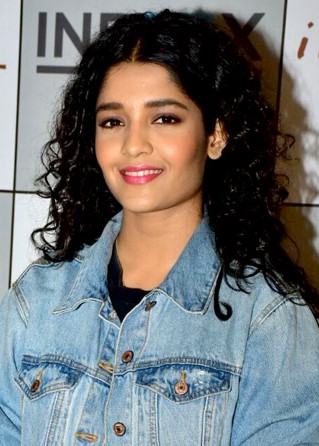Related Research Articles

The Dravidian languages are a family of languages spoken by 250 million people, mainly in southern India, north-east Sri Lanka, and south-west Pakistan. Dravidian is first attested in the 2nd century BCE, as inscriptions in Tamil-Brahmi script on cave walls in the Madurai and Tirunelveli districts of Tamil Nadu.

Tamil is a Dravidian language natively spoken by the Tamil people of South Asia. Tamil is an official language of the Indian state of Tamil Nadu, the sovereign nations of Sri Lanka and Singapore, and the Indian Union territory of Puducherry. Tamil is also spoken by significant minorities in the four other South Indian states of Kerala, Karnataka, Andhra Pradesh and Telangana, and the Union Territory of the Andaman and Nicobar Islands. It is also spoken by the Tamil diaspora found in many countries, including Malaysia, Myanmar, South Africa, United Kingdom, United States, Canada, Australia and Mauritius. Tamil is also natively spoken by the Sri Lankan Moors. One of 22 scheduled languages in the Constitution of India, Tamil was the first to be classified as a classical language of India.

Kamal Haasan is an Indian actor, filmmaker, screenwriter, playback singer, television presenter and politician who works mainly in Tamil cinema and has also appeared in some Telugu, Malayalam, Hindi, Kannada and Bengali films. He is regarded as one of the finest actors in the Indian cinema. Haasan is also known for introducing many new technologies and cosmetics to the Indian film industry. He has won numerous accolades, including Four National Film Awards, Nine Tamil Nadu State Film Awards, Four Nandi Awards, One Rashtrapati Award, Two Filmfare Awards and 17 Filmfare Awards South. He was awarded the Kalaimamani Award in 1984, the Padma Shri in 1990, the Padma Bhushan in 2014 and the Ordre des Arts et des Lettres (Chevalier) in 2016.

Languages spoken in the Republic of India belong to several language families, the major ones being the Indo-Aryan languages spoken by 78.05% of Indians and the Dravidian languages spoken by 19.64% of Indians, both families together are sometimes known as Indic languages. Languages spoken by the remaining 2.31% of the population belong to the Austroasiatic, Sino–Tibetan, Tai–Kadai, and a few other minor language families and isolates. As per the People's Linguistic Survey of India, India has the second highest number of languages (780), after Papua New Guinea (840). Ethnologue lists a lower number of 456.
"Sri Lanka Matha" is the national anthem of Sri Lanka. "Sri Lanka Matha" was composed by Ananda Samarakoon and was originally titled "Namo Namo Matha".

There is no national language in the Republic of India. However, article 343(1) of the Indian constitution specifically mentions that "The official language of the Union shall be Hindi in Devanagari script. The form of numerals to be used for the official purposes of the Union shall be the international form of Indian numerals," while clause 3 of the Official Languages Act, 1963 mentions the "Continuation of English Language for official purposes of the Union and for use in Parliament". Hence Indian English and Modern Standard Hindi are the Official Languages of the Government of India.

G. V. Prakash Kumar is an Indian music composer, playback singer, actor and producer known for his work in Tamil films and a few Telugu films as well. His first film was S Pictures' Veyil (2006) and he gained fame in Tamil films by the early 2010s. He made his debut in acting on 2015 through Darling. He has won one National Award and three Filmfare Awards in his film career.

Lakshmi Rai, professionally credited as Raai Laxmi, is an Indian actress and model who predominantly works in Tamil, Malayalam, Telugu, Kannada and Hindi languages.

Tanittamiḻ Iyakkam is a linguistic-purity movement in Tamil literature which attempts to avoid loanwords from Sanskrit, English and other languages. The movement began in the writings of Maraimalai Adigal, Paventhar Bharathidasan, Devaneya Pavanar, and Pavalareru Perunchitthiranaar, and was propagated in the Thenmozhi literary magazine founded by Pavalareru Perunchithiranar. V. G. Suryanarayana Sastri, a professor, was a 19th-century figure in the movement; in 1902 he demanded classical-language status for Tamil, which it received in 2004.

The Central Institute of Classical Tamil (CICT) is a body established by the Government of India with a view to promoting the cause of Classical Tamil. It is located in Chennai.

Tamil cinema, also known as Kollywood, is a part of Indian cinema; primarily engaged in production of motion pictures in the Tamil language. Based out of the Kodambakkam neighbourhood in Chennai, Tamil Nadu, it is popularly called Kollywood - a portmanteau of the words Kodambakkam and Hollywood. The first Tamil silent film, Keechaka Vadham, was directed by R. Nataraja Mudaliar in 1918. The first Tamil talking feature film, Kalidas, a multilingual directed by H M Reddy was released on 31 October 1931, less than seven months after India's first talking motion picture Alam Ara.

Sankaramanchi Janaki, popularly known as Shavukaru Janaki (Telugu) or Sowcar Janaki (Tamil) or Sahukar Janaki (Kannada), is an Indian actress who has appeared in over 300, films, predominantly in Telugu, Tamil, and Kannada languages. She also performed on stage in over 300 shows and was a radio artist during her earlier years. She is the recipient of two Nandi Awards, Kalaimamani and India's fourth-highest civilian award Padma Shri. Her younger sister Krishna Kumari, is also a noted actress.

Baahubali: The Beginning is a 2015 Indian Telugu-language epic action film co-written and directed by S. S. Rajamouli, and produced by Shobu Yarlagadda and Prasad Devineni under Arka Media Works. The film was produced in Tollywood and was filmed in both Telugu and Tamil languages simultaneously. It features Prabhas in a dual role alongside Rana Daggubati, Anushka Shetty, Tamannaah, Ramya Krishna, Sathyaraj, and Nassar. The first of two cinematic parts, the film follows Sivudu, an adventurous young man who helps his love Avantika rescue Devasena, the former queen of Mahishmati who is now a prisoner under the tyrannical rule of king Bhallaladeva. The story concludes in Baahubali 2: The Conclusion.

The Eighth Schedule to the Constitution of India lists the official languages of the Republic of India. At the time when the Constitution was enacted, inclusion in this list meant that the language was entitled to representation on the Official Languages Commission, and that the language would be one of the bases that would be drawn upon to enrich Hindi and English, the official languages of the Union. The list has since, however, acquired further significance. The Government of India is now under an obligation to take measures for the development of these languages, such that "they grow rapidly in richness and become effective means of communicating modern knowledge." In addition, candidates sitting for an examination conducted for public service are entitled to use any of these languages as a medium to answer the paper.

Paasa Paravaigal is a 1988 Indian Tamil-language drama film directed by Cochin Haneefa and written by M. Karunanidhi, with music by Ilaiyaraaja. The film stars Sivakumar, Lakshmi, Mohan and Raadhika. It is a remake of Haneefa's own 1986 Malayalam film Moonnu Masangalku Mumbu. The film was released on 29 April 1988 and became a commercial success. It won the Tamil Nadu State Film Award for Second Best Film, and Raadhika won the Best Actress at Cinema Express Awards.

Cinema Express was an Indian Tamil-language entertainment fortnightly magazine published from Chennai, Tamil Nadu. It was a part of The New Indian Express Group, which also publishes Samakalika Malayalam Vaarika weekly as well as Dinamani and Kannada Prabha newspapers. The Cinema Express brand is now used for the film industry coverage of The New Indian Express regardless of language.

Ritika Mohan Singh is an Indian actress and former mixed martial artist who predominantly appears in Tamil films in addition to Hindi, Telugu and Malayalam Language films. After competing for India at the 2009 Asian Indoor Games and then participating in the Super Fight League, she played a leading role in Sudha Kongara Prasad's Tamil film Irudhi Suttru alongside R. Madhavan. She won Special Mention at the 63rd National Film Awards for her performance in the film. She received Filmfare Awards three times for the same role in three languages: Tamil, Hindi and Telugu (Guru). She has won one National Award, one SIIMA award, and three Filmfare Award respectively.
Soibam Rebika Devi is an Indian translator who is best known for translating the Tirukkural into Meitei.
References
- ↑ "The New Indian Express Group shuts 36-year-old fortnightly Cinema Express". Business Standard . 22 February 2016. Retrieved 19 September 2016.